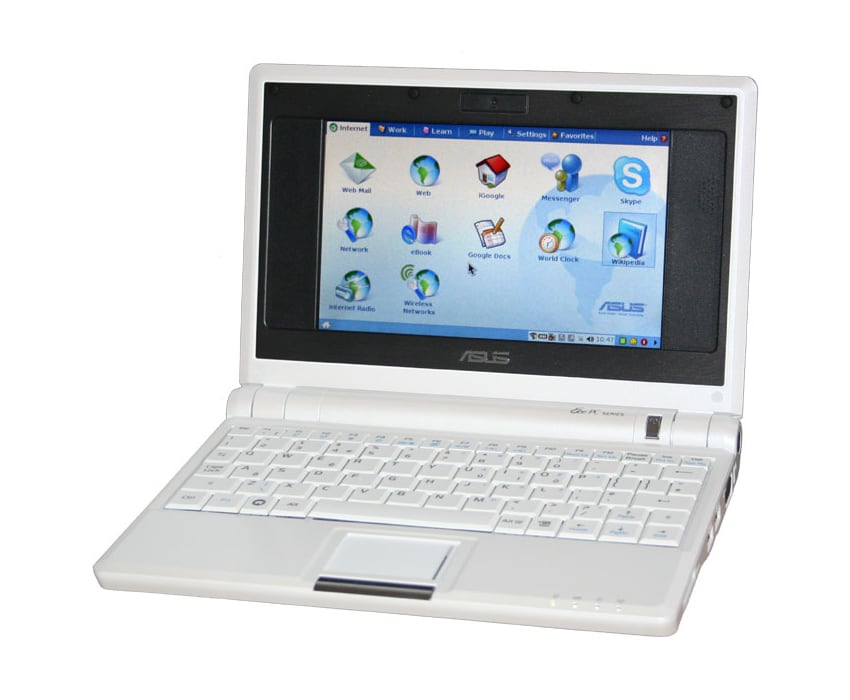What a tool can do
One of my favorite pieces last year is about netbooks, remember those? They were cheap computers with questionable power, small and cramped, pretty much only good for browsing the web in most people’s eyes. If that doesn’t ring a bell, the Asus Eee PC might, sporting a 7” screen and a Linux operating system with a simplified UI. The model below is from 2007, bet subsequent ones were larger, and you could get them with Windows XP.

Image by Red at English Wikipedia, CC BY 3.0
I loved netbooks, for what they were, but they’re all but gone now. The equivalent would be things like the GPD Win and the like, but those tiny computers will set you back what 3-4 netbooks would cost, at least.
Which is why I love this story, from Rest of the World, about netbooks in Argentina. A 10” netbook, called Conectar Igualdad and sporting 1 GB RAM (no, that’s not a lot), was distributed among young people to give them access to a whole new creative world.
The idea was simple: With public schools as mediators, the state would put a netbook in every public primary and secondary school student’s hands. That way, every low-income student in Argentina had access to tech when computers were becoming essential work tools.
Tech in Argentina has always been particularly inaccessible due to the country’s traditionally protectionist policies — often with the effect of raising prices and lowering product quality. Conectar Igualdad could be interpreted as a continuation of these policies. The government’s precondition for the free distribution of netbooks was that they had to be made in Argentina.
This sparked global sensations and music superstars, proving once again that access to somewhat modern technology is key. It’s a wonderful story, I urge you to go read it.
I live in Sweden. We’re well-off, overall, as a country, when it comes to technology, so much that we take it for granted. People working in tech spend a lot of money on smartphones, tablets, and computers. I do that too, and I must confess that I feel ashamed when I long for those simpler devices because I do — I loved my netbook, back in the day. But the thing is, even then, that netbook was an extra device, almost a novelty. Getting nostalgic about things like that, being inspired by stories like the linked one above, feels silly. Especially as I’m typing this on a $5,000 MacBook Pro. I’ve never been blown away by the possibilities of a computer because they’ve always been around me, and, from an adult age, I’ve always been able to afford the equipment needed for my interests and whims.
And yet, despite having owned a bunch of musical equipment and semi-professional hardware and software, I didn’t amount to anything even remotely close to what the Argentinian music superstars mentioned in the article did, with way less at that. Chances are, I’ve got decades old discarded hardware in boxes that outperform what they used to break through, many times over.
We had the same chance — no, scratch that — we all had a chance, but mine was a lot more likely to be successful, thanks to who my parents were, and where they were born. I think about that a lot. I also like to remind myself that it’s not the tools that define your potential success, it’s what you make of them.
There should be more tools available, for everyone.